This is an interview series where FEC sits down for an intimate conversation with leading thinkers and doers in the food, hospitality and agriculture industries. This series aims to offer insight and food for thought to keep us connected and engaged in a vaster network of inspirational entrepreneurs in both Berlin and beyond.
An interview with Maria Canabal by Madeline McLean
More often than not, it seems as though popular culture and the international gastronomic media tend to equate successful, innovative kitchens with male chefs and reward quite disproportionately those kitchens with males at the helm. But the media as a target can be a low-hanging fruit – it should also be noted that solely addressing disproportionate press coverage is to say nothing of the power structures in place that in many ways systematically disadvantage the development and disenable the success of female chefs. That today’s and past generations of highly-regarded male chefs actually originate from a lineage of female haute-cuisine chefs—the first chefs of any gender to achieve the highest honors in French gastronomy—and the fact that so little is actually spoken about this reality, only provides further evidence that today’s gastronomic media operates with a selective sense of history. But how and when did this paradigm shift occur both in media coverage and the power structures of the professional kitchen, particularly when the collective cultural memory of the kitchen continues to live on as a space of maternal nourishment?
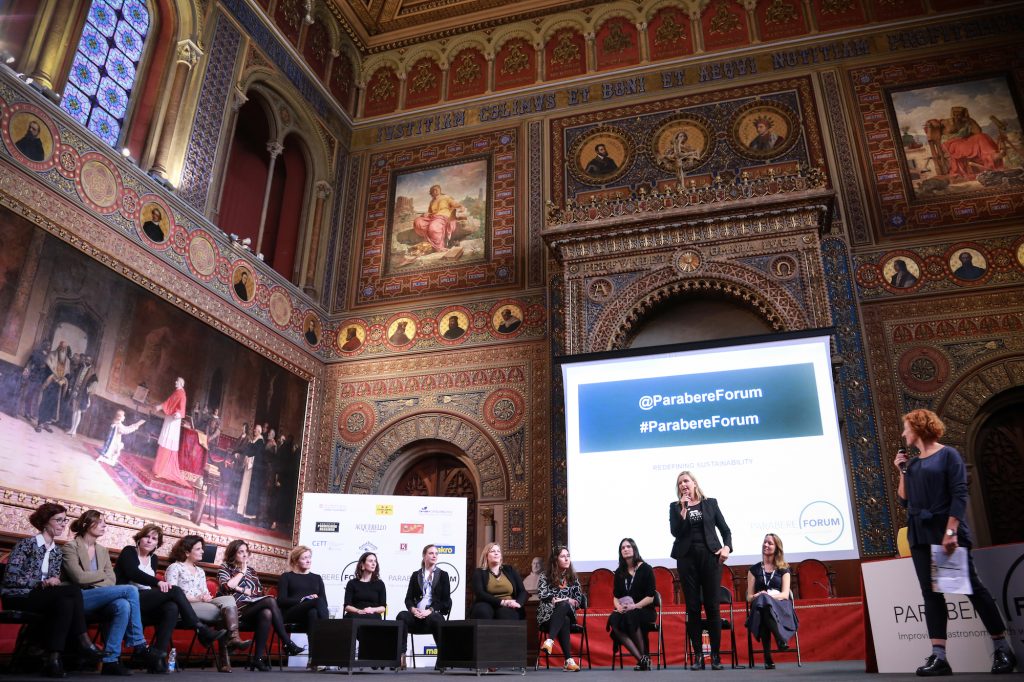
It’s likely not a coincidence that the first generation of internationally renowned male chefs of the haute-cuisine order came about in the postwar period. Although the professional kitchens that produced haute cuisine in France were never a place for the faint of heart, it still stands to reason that the application of militaristic systems—holdovers from a decidedly male space in an otherwise male-dominated era—slowly but surely marked the transition from female to male primacy in the kitchen. That these militaristic systems were further codified in the first large-scale international culinary schools, only served to further solidify the reality that men would be the leaders of the midcentury culinary revolution and beyond.
But the group of postwar male chefs most commonly associated with midcentury French haute cuisine of international renown, including Fernand Point, Paul Bocuse and Auguste Escoffier, were in fact reared at the hands (or perhaps the fists) of female chefs. And it was in these kitchens—of the Mères Lyonnaises—that numerous Michelin stars were distributed. These Mères—a term of endearment and honor that indicated not just the female chefs but also the rustic, local bistros or restaurants they ran—reigned supreme from the mid 1700’s to the 1920’s and were among the first cooks of either gender to attract international attention to French cuisine in its early-modern iteration. Not only were these women tour-de-forces in the kitchen, it must be noted that they were all self-taught as well.
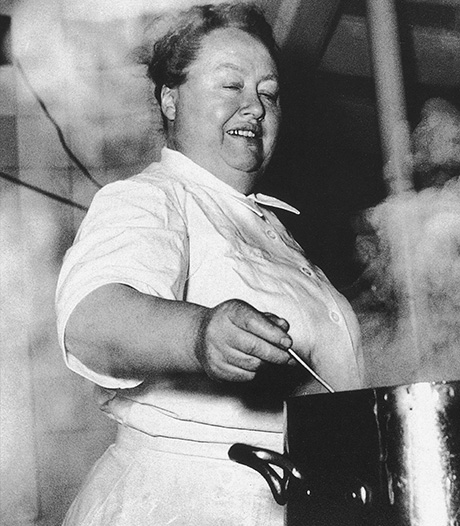
Eugénie Brazier and mère Fillioux (Brazier’s mentor) were each awarded three Michelin stars for their establishments in Lyon. In fact, Brazier was the first French chef, man or woman, to win six Michelin stars across her two restaurants: one in Lyon and one at Le Col de la Luère. It wasn’t until 1998 that Alain Ducasse accomplished this same feat, some eighty years later, and with high praise from the New York Times as the first ever to have received this honor. (However the New York Times issued a correction five days later, backtracking their claim and acknowledging Brazier’s achievement.) And let it be known that it was actually at Brazier’s Col de la Luère restaurant that Paul Bocuse apprenticed, though throughout his career he gave little credit to Brazier, and instead focused more on directing attention towards his male mentors. As a result, one could argue that Bocuse is one of the culprits behind the apocryphal origin-story of the testosterone-driven, hard-charging, high-achieving Chef personage.
Fast forward to the year 2000—almost a half-century later—to the release of Anthony Bourdain’s Kitchen Confidential: Adventures in the Culinary Underbelly, through which he swung wide the kitchen doors of the New York food industry, for all to see. Typifying the hyper-masculine, knife-wielding, sex-crazed, foul-mouthed Don Juan chef-character, clad in tattoos and hooked on drugs, Bourdain’s narrative unveiled the raw state of kitchen culture during the late-nineties in New York. Though a thrilling and admittedly sexy read, his book also went a long way towards reducing the hospitality industry to its most sexist stereotypes (i.e. the professional kitchen was the man’s domain; the woman’s, the front of house; and if ever the two should meet it would merely be to copulate in the walk-in fridge). The book, though highly popular, further enabled the darker side of gender politics in the food industry through its pulpy hyper-profanity and glorification of kitchen / outlaw culture.
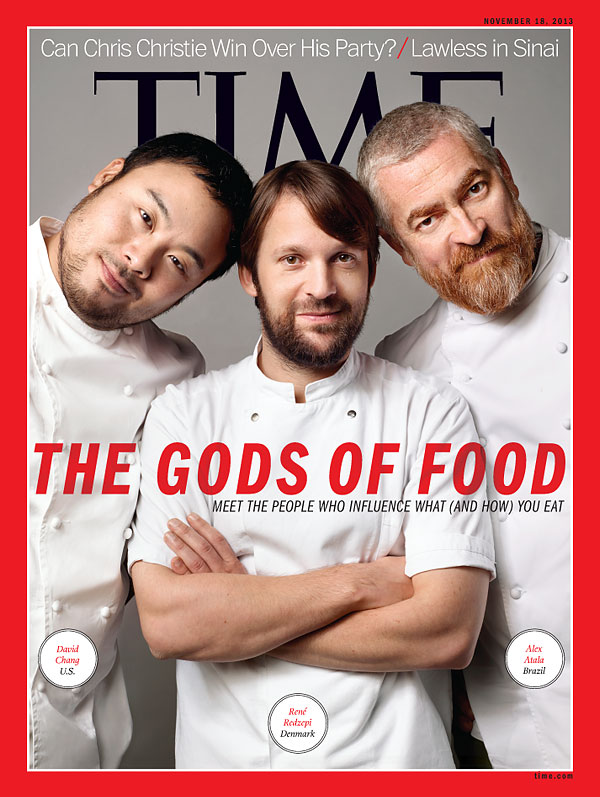
With the advent of new media channels and the popularity of food television in the early 2000’s, popular culture became increasingly obsessed with the food industry. Chefs such as Jamie Oliver, Gordon Ramsay, Masaharu Morimoto, Ina Garten, Giada De Laurentiis, Nigela Lawson and (of course) Anthony Bourdain, increasingly attained celebrity status. Jump ahead a few years into the blogosphere, onto Instagram and Pinterest: these new media channels have since become increasingly dominated by recipes, food travels, food fads, food styling and food debates. Together, award panels, ratings publications and the widening circulation of gastronomy-focused periodicals, have elevated the stature, importance and cultural currency of restaurants and food to a level not previously seen across such wide swaths of society.
Then came November 2013 and the release of the inflammatory article “The Gods of Food: Meet the People Who Influence What (and How) You Eat”, which featured Rene Redzepi, David Chang and Alex Atala on the cover of Time Magazine. Not only were those on the cover all men, but also contained within Time’s ranking of thirteen influencers of the way YOU (supposedly) eat were only four women, and not a single one a chef.
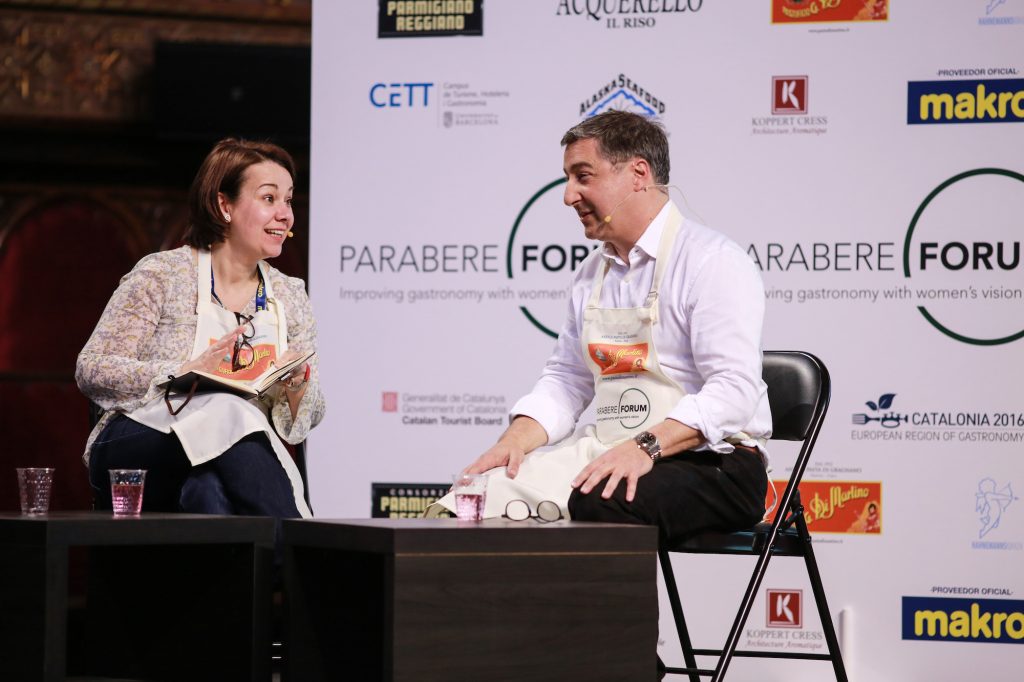
It is laughable to say that today—still today, in the year 2017—there has not been enough change. It is even more horrifying and inexcusable that media outlets continue to “man-wash” awards panels and symposia by allowing them to be disproportionately stacked with men. To drive this point home, I offer a few statistics from French-born, London-based filmmaker Vérane Fédriani’s film “The Goddesses of Food” from 2015–2017, that are sure to raise the blood pressure a few PSI:
-There are 2650 restaurants with Michelin stars worldwide. Roughly 5% have a female chef. Most of them are in Italy.
– Five female chefs have three Michelin stars: two in Italy, two in Spain and one in France.
– Two female chefs have been awarded the title “Meilleur Ouvrier de France (MOF)” since 1924
-In the World’s 50 Best Restaurants list there were a scant two restaurants with female chefs in both 2016 and 2017. The first female isn’t mentioned until No.30
-The new Le Chef 100 Best Chefs in the World list, voted by starred chefs, includes two women.
––
At the center of this discussion, a determined activist and influential woman named Maria Canabal has made it her current life’s work to focus on the lack of gender diversity in haute cuisine, the wine industry, gastronomy awards and juried panels. Plus, she’s speaking out about the way media communicates realities in the kitchen. After the United Nations’ HeForShe campaign launched in 2014, human rights lawyer and journalist Canabal set out to create Parabere Forum, born from the idea that both men and women should work together towards gender inclusivity. Though Parabere and Canabal focus a great deal of attention on gender diversity in the food and beverage industries, a great deal of Canabal’s platform also focuses on encouraging women to use their voice in the public relations and media spheres to shatter glass ceilings.
I was fortunate enough to have been a Berlin delegate at the last Parabere forum in February, where I met Canabal and was witness to the strength of her platform and intensity of her vision. I followed up with her some months later to speak a little more in depth about her missions, her perspective on change and to find out how we can all work together to make the food and beverage industry more inclusive.
Hi Maria, it’s so great to talk with you. Can you tell me a little bit about your background and how you came upon this advocacy platform?
I am a food journalist and when I started to think about how the media, for example, was talking about women in food, women were always featured in articles [specifically] about women. Like an article about women bakers – no! let’s talk about just bakers – bakers can be anybody you know? Also in parallel, this boy’s club mentality in haute cuisine: it is something I have realized [for] many, many years that all the chefs we know in haute cuisine are men. Even if there are women with more [Michelin] stars than men, we only know the men.
Though we women also have some homework to do also: it’s not always the fault of the others. But then when the United Nations launched the campaign HeForShe it was like a spark of something for me in my mind. And I thought ok, [I] have always been a human rights activist, there is an issue in my industry – which is food and wine – and now this campaign HeForShe [says] that it’s not just about women thinking what they can do to change women’s lives, it’s about women and men thinking about how to make changes together. And this is how Parabere Forum was formed.
For Parabere, how has it gone for you since you launched it to today? Do you feel like you are really achieving what you want, or how has the scope grown and changed from when you launched it?
We are going now into the fourth year and we’re very lucky because we’ve gotten a lot of attention from the media – from big international media like CNN, for example. So this is very important for the platform because it puts the focus on the fact that diversity is an asset. We are very happy that the media is relaying the info, that they are relaying the philosophy. You know also many, many projects are born after Parabere and this is probably the most important thing that people connect, that people do things together. And then what is very interesting is that we have a database with 5,000 women in the industry who are chefs, sommeliers, producers, food anthropologists, scientists, bartenders. Now people know more and more about this database and now there are universities, foundations, congresses calling us and saying they would like to invite more women, could you please connect us with women in the industry. [The database] is very important because there are many, many events related to food everyday in the world with no women at all. At all.
Do you feel like you get a lot of pushback or come up against male-run organizations or male organizers who don’t necessarily care about diversity in their organizations or events? What the organizers want is to earn money, that’s all. They want to have the sponsors. And it’s totally different when you have [Alex] Atala, [René] Redzepi, [Massimo] Bottura, [Joan] Roca than when you have [Carme] Ruscalleda, [Dominique] Crenn, [Roberta] Sudbrack or [Fina] Puigdevall who have exactly the same number of stars as the guys but nobody knows them. So the organizers or events, they don’t think about diversity or they don’t think about balance; they think money.
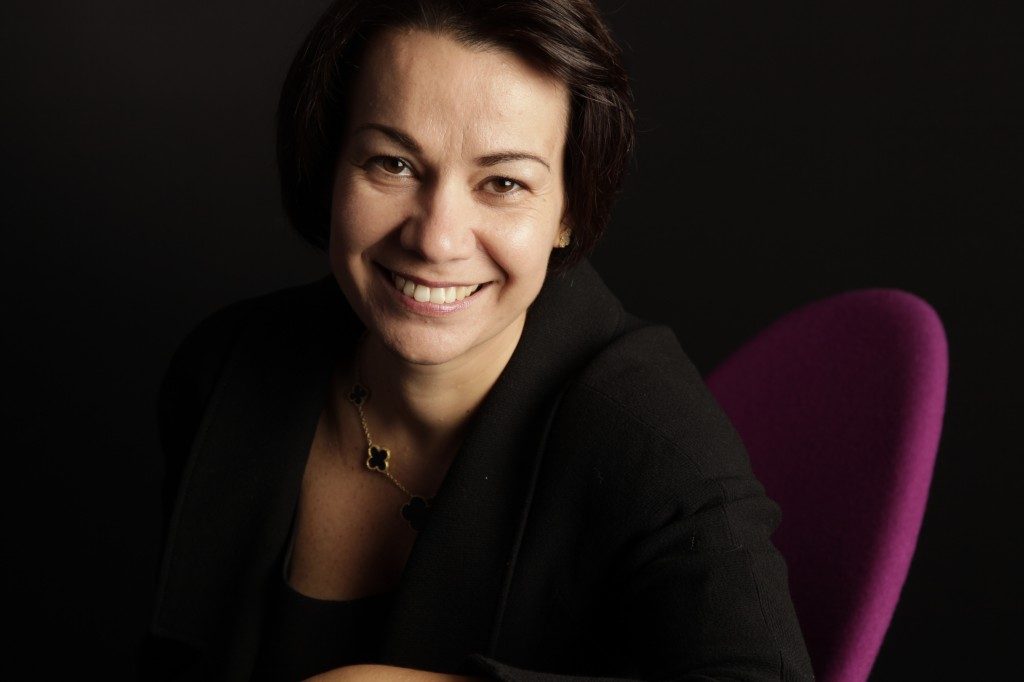
Do you think that these award institutions and juries such as James Beard, World’s 50 Best, Michelin, San Pellegrino Young Chef, that in the year 2017 they might be willing to change their male-dominated jury panels and finalist scope?
No, I’m very sorry to say this but I don’t see a change in these big companies. They are really not there for supporting inclusion and diversity, which is really a pity when you are such a big company because everyone is looking to you and if [they] promote inclusion and diversity, it’s going to inspire others. This is why this is very important because they are making role models. But in fact, no, they are not interested [in asking these questions] because everything is about benefitting their companies.
Let’s talk about these juries: why are they comprised of mostly men in the first place? Is it just an old-school frame of mind?
Sometimes I get the opposite remark when I say [to them] that there is no female on the panel and this is unacceptable. They tell me “well there are not so many female candidates” and I say, “well of course, this is a consequence!” It’s not surprising at all when you don’t have any women as a judge that you have any women as candidates because [they] immediately think that this job is not for [them], that this job is for men.
The thing is when you are in [culinary] school and you see that all the teachers are men, or when you look at the media and you only see male chefs in the media, when you go to the competitions and the judges are only men, when you go to Google and type in ‘famous chefs’ and you see that the images are all men, at the end you think that this [industry] is not for you. And this is a problem.
Do you think that the David Changs and the Anthony Bourdains have been given a platform because they’re just the loudest, whereas some of the big female chefs or female food entrepreneurs just don’t give a shit and they’re just doing their own thing and that’s reason the public doesn’t always hear about them?
Yeah, there are two factors and you are right. One of the factors is what we call the Good Girl Syndrome. The Good Girl Syndrome is the fact that in many societies [women] are raised to be very good in school and very good at their job but [told to] shut up. In any case we educate women not to talk, to inform and to communicate about our own achievements. This is an educational problem. The other factor is that we also have very little spare time for communicating because society expects from women, in addition to their jobs, to take care of the family.
This is something that is changing with the Millennials because they [are agreeing] to raise children together, so being a chef is a problem now for women and also for men. This idea that [being a chef] is too demanding…now it’s too demanding for women and men, not only for women. The difference is that [society] doesn’t expect a male chef to take care of the family, but [it does] from a female chef.
—
Photo credit –
PARABERE photos (1, 3, 4): Parabere Forum 2017, all rights reserved
TIME photo Cover: Credit PHOTOGRAPH BY MARTIN SCHOELLER FOR TIME 2013
La mere Brazière: photo taken from http://lamerebrazier.com/la-mere-brazier.php



